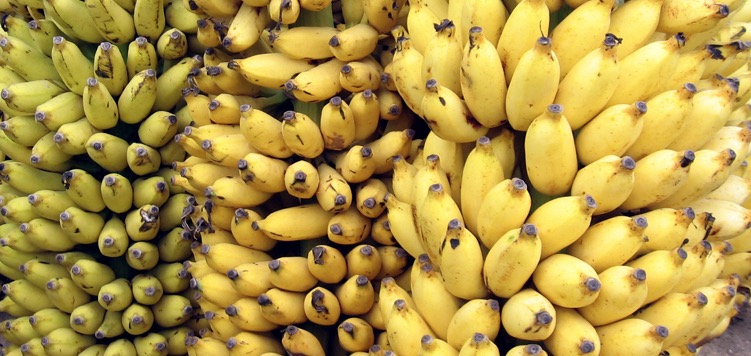Conventional vs Organic vs Genetically Modified
As you walk into the supermarket, you see a mind-boggling variety of fruits and vegetables. But have you ever wondered whether the attractive looking fruits which promise you that extra pulp and sweetness might not be your ideal health choice. Now there is a way to choose smartly and differentiate between conventionally grown, organically grown and genetically modified fruits by reading their labels carefully.
The fruit stickers have numbers on them which are also 4-5 digit codes called PLU (Price Lookup Code). These help differentiate between fruits based on their method of cultivation. These codes were originally developed and used by supermarkets since 1990 to enable accuracy and speed in check-out and price control by cashiers by eliminating the need to identify the product. This labelling system had been introduced by the International Federation for Produce Standards (IFPS).
The significance of this labelling was highlighted again by Nadine Aoun, nutritionist and dietician at Medcare Hospital in Dubai in a recent interview with Gulf News. According to Nadine, the codes indicate the following –
- A 4 digit PLU code starting with the number 3 or 4 indicates conventionally grown fruits using pesticides and chemicals
- A 5 digit PLU code starting with the number 8 indicates genetically modified fruits (GM/GMO)
- A 5 digit PLU code starting with the number 9 indicates organically grown fruits
The PLU for bananas is “4011” a GMO banana would be 84011. On the other hand, the symbol for organic is the number “9” in front of the 4-digit PLU code so 94011 would indicate an organic banana: you’ll see plenty of 94011-labeled bananas in supermarkets.
In 2014 there were more than 1400 PLU codes assigned to produce and related items. More information for the PLU codes can be obtained on the IFPS website.
Nadine not only reiterated the significance of each code but also gave additional pointers regarding the implications of type of the method of cultivation. She said, “While organically grown fruits contain more antioxidants, flavonoids and proteins, conventionally grown fruits are not harmful for the body. For more benefits, people should choose organic fruits, as they also do not contain food additives or preservatives [which can be the cause of allergies].” Organic foods are also more eco-friendly since they are grown using natural fertilizers and natural methods of pest control such as crop rotation, predator insects or beneficial microorganisms. Conventionally grown fruits might have pesticide or fertilizer residues on them which can be toxic to the body in the long term. However, a study by Stanford University has shown that there is very little difference in the level of nutrition between organic and conventionally grown fruits.
Recently, a statement by the US President Barack Obama‘s Office of Science and Technology Policy ordered the restructuring of the regulations related to GMO crops after a demand by consumers, food related organizations and businesses for tighter regulation of genetically modified (GMO) crops . This demand occurred over a nationwide debate related to whether GMO crops should be labelled. The White house stated that the regulations stated by the federal agencies that oversee biotech crops are very complex for the public and small companies hence an overhauling of GMO crop related policies has to be done on priority.
Back in 2008, the U.S. Department of Agriculture’s Animal and Plant Health Inspection Service (APHIS) was under the scanner after contaminations in high-profile GMOs that caused trade disruption and food withdrawals. Scott Faber, Senior Vice president of the Environmental Working Group, said “Reform of the badly outdated system for reviewing GMO crops and other products is long overdue.”
Thus, until there is a uniform and transparent system for fruit labelling, we can stick to the norms dictated by the PLU codes and choose wisely.
Original Content Source: biotechin.asia


Leave a Reply